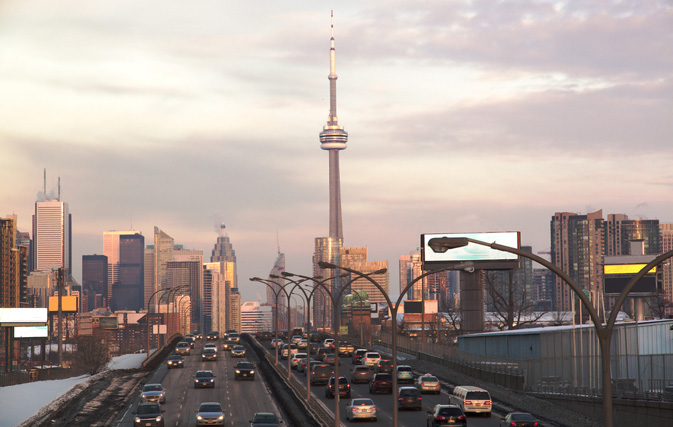TORONTO — An Ontario judge questioned Monday whether the court was the right avenue to resolve a dispute between the ride-hailing service Uber and the City of Toronto.
The city is seeking a permanent injunction on the company’s operations, arguing Uber is a taxi company and must abide by the city’s regulations.
But Uber says it is connecting passengers and drivers and is not subject to the city’s bylaws, arguing it is simply a communications company.
Judge Sean Dunphy repeatedly cut off the city’s lawyer, Michelle Wright, as she made her arguments Monday.
“You’ve passed a bylaw, you’ve revised it multiple times since the Internet came on the scene _ I’m highly interested if you’ve snared this business in your net,” he said.
“But is the court the right place to get political courage to change bylaws? … It’s not my job to help you.”
Uber offers passengers various services through its online app, from taxi and limousine rides to rides with ordinary drivers through its cheaper UberX application.
Dunphy admonished the city for going after the company rather than the UberX drivers, who operate as a taxi without a license.
“You have a group of drivers, but you cannot trap all of them in your net,” Dunphy said.“You’d rather go after the Godfather.”
Wright laid out the rules and regulations surrounding taxis, limousines and their brokerages.
Again, the judge fired back: “If you use Bell Canada to call a taxi, would you call them a taxi brokerage?”
“If Bell was used to make a phone call and they took a payment, they would indeed be a business that fell under our regulations,” Wright responded.
Then she disputed Uber’s claim that restricting its business is a violation of the company’s charter rights _ the freedom of expression.
“The city submits that the right to have an unlicensed taxi company doesn’t go to any of the core elements of freedom of expression,” she said. “These are economic interests.”
Late in the day, lawyer Julie Rosenthal began presenting Uber’s case.
“None of (the respondents) is accepting requests or calls, they are simply putting passengers in touch with drivers _ they do not trigger the municipal licensing code’s scheme and are not subject to them.”
Rosenthal said the issue should be decided by politicians.
“It is not for the court to amend the municipal code. That is fundamentally a job for the legislators.”
An Uber spokeswoman said in a statement that the company is committed to working with the city on regulations for ride-hailing technology such as theirs.
Susie Heath said “stopping Uber’s operations in the city will not promote public safety or improve urban mobility for Torontonians.”
Uber has applied for a taxi brokerage license through the city about a month ago, but didn’t apply for a limousine license.
Toronto Mayor John Tory has said new technologies such as Uber’s are here to stay and the city must figure out a way to work with them.
He said, however, that Uber cannot simply flout the city’s rules for taxis.
Taxi drivers have been vocal in their opposition to Uber, and roughly 500 staged a noisy protest outside Toronto City Hall on Monday morning.
The case is scheduled to continue over the next two days.
